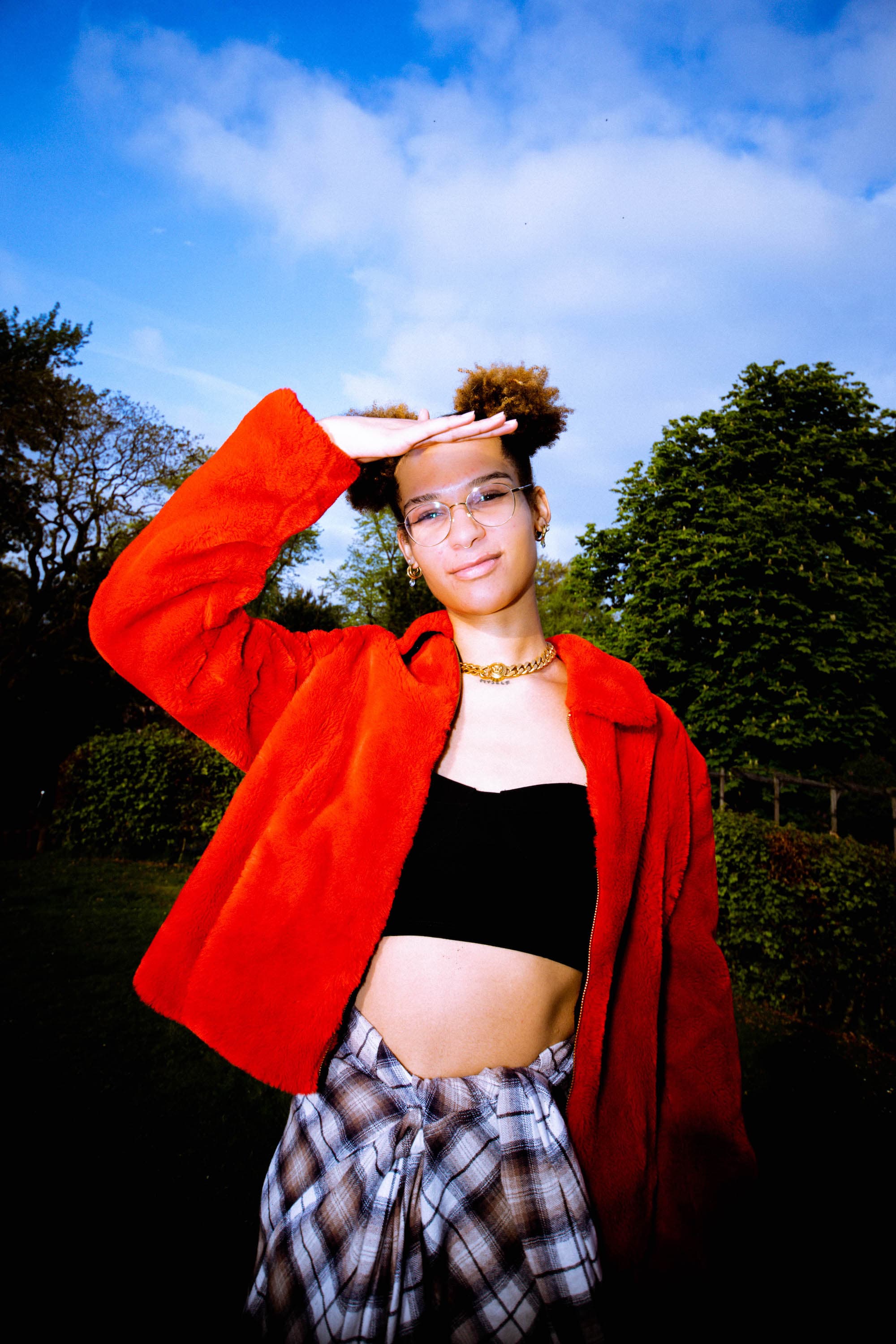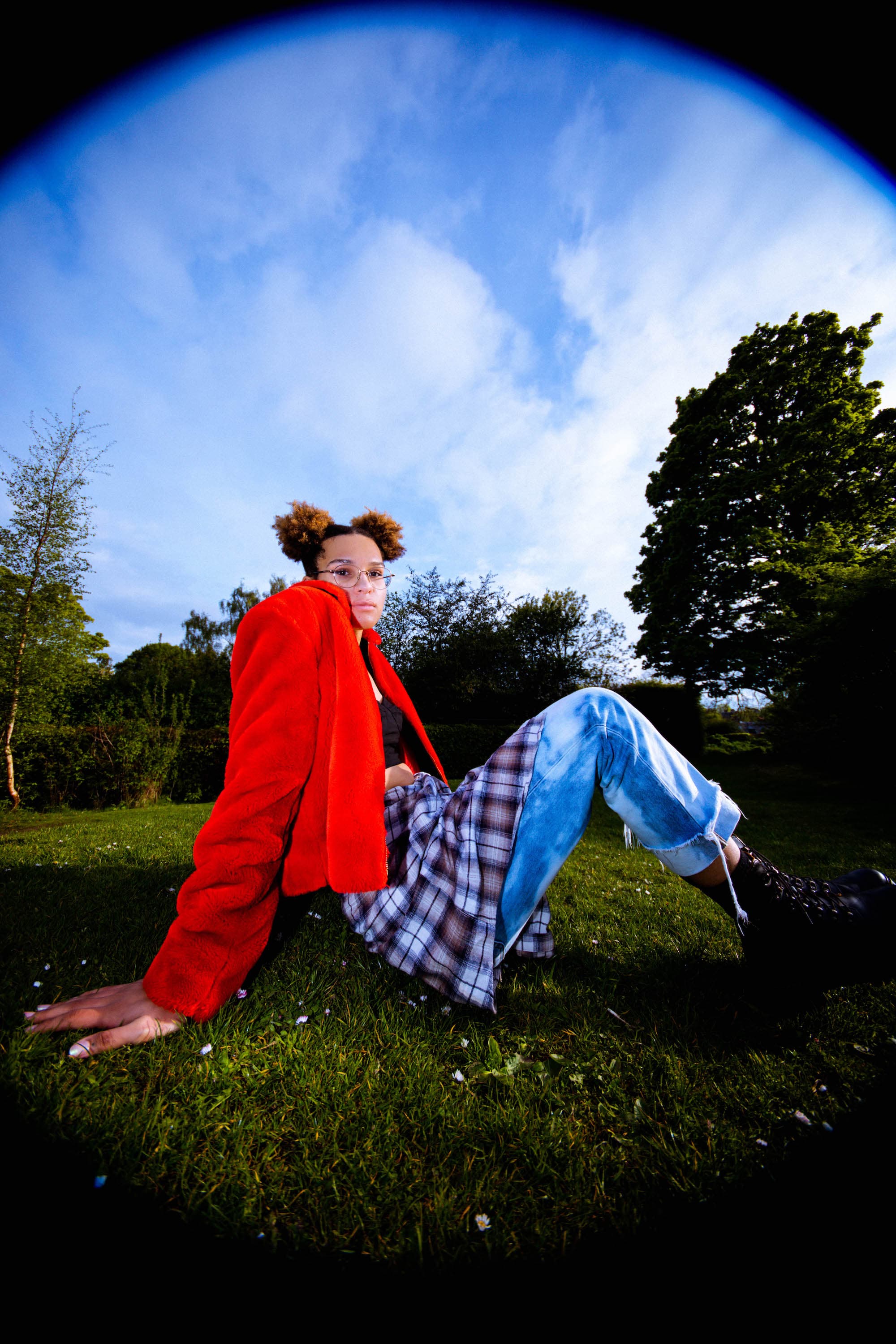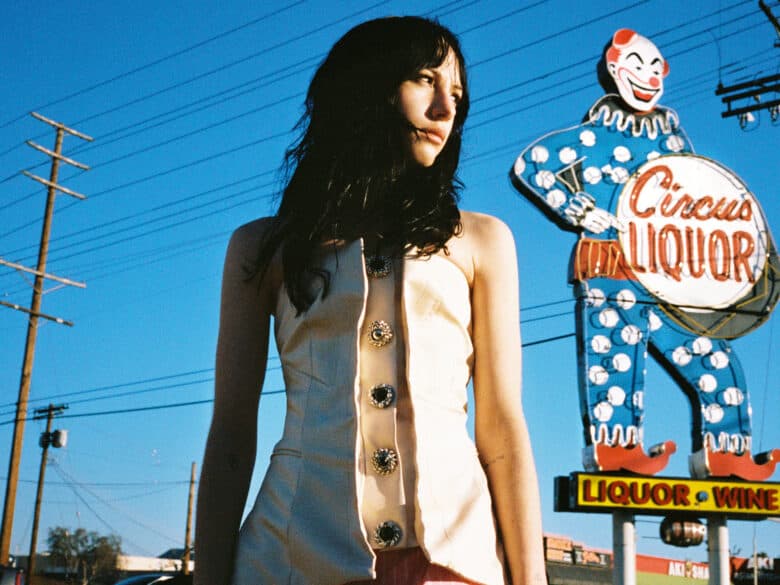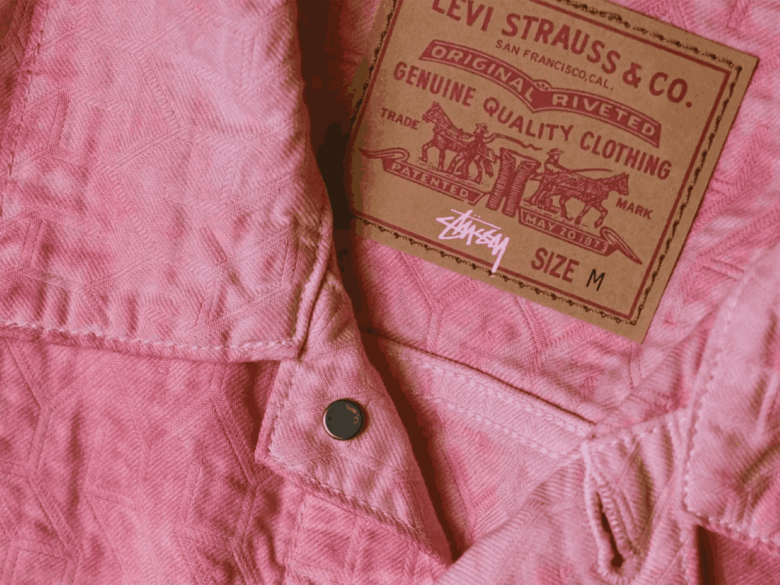Taahliah: NOT YOUR SUBGENRE
I want to start by talking about “Bourgeoisie”, it’s a great track from your EP, and makes it very clear that you’re not the bourgeoisie. Why was it so important to you to make your class and cultural background so clear?
I’m so inspired and energised by the fact that I’m working class. And whenever I would come into situations where people would confuse my class background or think that I came from a higher class that what I was, it was almost as if they were insinuating that all the things that I’d worked for had been handed to me. As I got into art school, because I was surrounded by middle and upperclass people, I was immediately put into that bracket. Which is just so annoying, when it’s the opposite of that. I definitely wanted to make that abundantly clear. Especially within the music industry as well — there’s a reason why most of the well-established or most popular music artists all come up from upper or middle class backgrounds. I’m never coming from this place of financial privilege. My background and where I’m from is working class.
“Never Lose” is a similarly political track, was there a certain level of bravery needed to release it in the current climate around trans rights?
I don’t think so because that song is of mine and our collective trans experience, and that’s what I know best so why would I not make music about it? I guess the song, or the lyrics in the song, were also just a way of me trying to deal with what was going on. [Or] compartmentalise it in my own way. Kind of like, “Okay, what is going to be my reaction to the fact that my government don’t see me as an actual human being? Or don’t see me as someone who is deserving of healthcare?”
There’s only so much that marginalised people can do – it’s really down to the people in power, like, how are we meant to do this [ourselves]? We’re not even being listened to. I’m not trying to say that there’s no hope or anything like that, it’s just a very tiring experience.
Let’s talk about musical influences: 00s dance and club tracks, like CLUBLAND TV-style, have a huge influence on the EP – what’s your relationship with that style of music?
I grew up on trance music, my dad just consistently played trance and electronic dance music in the car, which then sparked my interest in those sounds. Those clubland tracks were a very big part of growing up during that time.In primary school, that’s what we would listen to. As I started to listen to more alternative music, within that I just started to listen to more alternative electronic music. That was when Purity Ring brought out their first album, which is something that I still listen to constantly – I think they’re a very big influence of mine.
When people listen to my music the notion of influence and inspiration can be a hard one to grapple [with], because people always immediately draw to this very specific sub genre of music, and [my music] is just immediately classed as that. There is so much more that goes into it it.

No, yeah — and I think it’s great that we’re not saying it [by name].
There’s a reason why I’m not naming names or sub-genres. There’s a laziness to it. It’s nice to be put within that same bracket, but no artist starts their career like, “I want to make music exactly like this person,” no artist does that. Why are we comparing trans musician to trans musician? Open it up! Compare me to cis people! My music stretches a whole breadth of influences, both trans musicians and cis musicians, queer, straight, white, Black, there’s so much of a breadth to it. I think people forget that there is a lot that goes into music, and they forget that it’s actually someone’s work, someone’s actually sat down and crafted this.
Yeah, let’s do that: the two major themes that come out of this EP for me are extremes of sentimentality and sexuality. Are those dominant feelings for you on a wider scale and do you see them as related in how they come across in your music?
Definitely. When you think about a song like “FMH” and a song like “Freefalling,” they’re very different sonically but both touch on sentimentality and sexuality at the same time. It was very deliberate for me to have this kind of like expansive breadth of sonics within the EP: I wanted to be able to articulate the human experience of highs and lows, pleasure and pain, and perhaps always relate it back to a queer context as well. With a song like “FMH”, people will listen to the lyrics and think that it’s just a deep,dark, gritty, sex-driven song. Where, actually, what I wanted to try and get across was the concept of being seen as a sexual object in terms of the trans body and how people interact with that. And when you interact with people who are interacting with that [objectification], how you’re expected to interact with them. You’re expected to just be seen as someone who wants to get — for lack of a better term — fucked.
But then a song like “Freefalling,” I feel like thats one of the most vulnerable songs that I’ve ever made. Through the choruses you just get so much more intense, to the point where there’s this big climactic drop at the end with all the synths. I really wanted to try and get across this experience of falling in love with someone. It starts off quite slow, it catches you almost, and then it builds up into something that sometimes you just can’t even wrap your head around because you’re just so enveloped by it.
And obviously “FMH” and “Transdimensional” are dance-floor-orientated tracks. How are you feeling about clubs and concert venues opening up in the next few of months?
I’m very excited. With music and trying to understand it, my best way of getting to grips with that is playing it to an audience, and I’ve not had that. There is something that is very articulate about seeing how people move to the music, and being able to gauge it that way. I’m very excited to experience [that] and to be able to play new music and have this new sense of analysis of what needs to be changed, or intensified or stripped-back.

We haven’t talked much about “Transdimensional” yet, which I absolutely adore, specifically the sampling. First of all, I’m wondering where the samples came from?
There are a few samples from Paris Is Burning andthere’s a sample of Eartha Kitt laughing. There’s a break, right at the beginning of the song, [that goes] “I become myself.” I wrote that and recorded it with a vocalist, so it’s not necessarily a sample [as] it’s something that I was able to create. There are a few samples in it that I don’t specifically know the origins of, because I created it in collaboration with [Scottish musician] KAVARI. Those were samples that she put in there, originally they were in a one minute demo [of hers] that I’d been able to just like splash across the full song.
With the Paris is Burning samples, that explicit representation of having relatable dialogue for trans people in club spaces, is that something thats important to you?
Yeah of course! As soon as the line “A lot of boys like me though” was in the project, I was like, “Chasers. This is about chasers.”
Yeah, literally…
I just owe it to trans people as a musician who happens to be trans, to offer an idea of comfortability and relatability because, at the end of the day, most of the music we hear has not been made by trans people. Whenever you’re able to offer that, as someone who comes from a marginalised background, you can offer your community some support artistically by talking about the collective experience. Of course you should be doing that.
Absolutely.
I’m trying to think if i have anything else to say…was that okay?
Angelica is out now on all streaming platforms.

